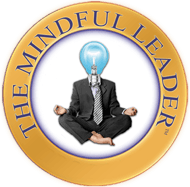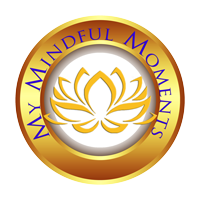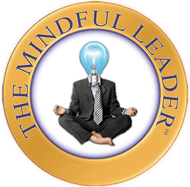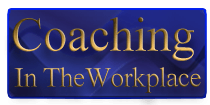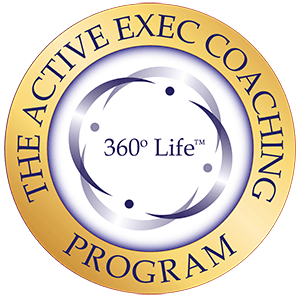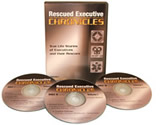Your ego can be described in a number of different ways and can include various concepts and ideas, so today we’ll learn more about the ego. What the ego actually is, how to recognize it working within your thoughts and emotions, how to work with it instead of fighting with it, and how this mindfulness practice can help you not only achieve a sense of inner peace but allow you to embody emotional maturity like you’ve never experienced before. This feels like a sense of confidence, courage, and peace regardless of outcome. You are not emotionally attached to any of it, so whatever happens, can happen and you adjust your course from there without going crazy while you’re doing so. That sense of desperation, emotional reactivity, and a need for control are all things that come from a place of ego, not a place of love and authenticity. Let’s dive in.
So, what is the ego, anyway? According to a quick online search, the ego is “the part of the mind that mediates between the conscious and the unconscious and is responsible for reality testing and a sense of personal identity.”
If the ego is the mediator between your unconscious and conscious mind, and is responsible for reality testing (gathering evidence about the beliefs trying to be “installed” into the unconscious), then it lines up perfectly with the ideas of unconscious programming and why emotional healing and overcoming said programming is such a heavy blow to the ego. The emotional purging people can experience during this process can be very intense, and this is because the ego is, in a sense, dying; losing its control because you are taking your power back from the standpoint of your authentic self.
How to Recognize Your Ego’s Input
The mind is a powerful processor, absolutely incredible in its capabilities. Just like a computer, there are hundreds, maybe even thousands, of little-programmed beliefs running in your unconscious mind, in the background where you aren’t fully aware of it because you haven’t trained yourself to see it in an obvious way.
However, there are ways you can recognize your ego’s input by observing your thoughts, emotions, and life experiences, and the majority of the time, the ego’s input will be negative or discouraging. So, for example, if you’re getting ready to go to a job interview for a job you really want and are excited about, your ego might chime in with, “Are you sure you’re qualified for this position? You know the competition will be fierce… are you sure you’re at that level?”
If you hold certain unconscious beliefs, you can also see them playing out in your life experiences. Do you have repeating stories in your life? Patterns of behavior and experiences? How have your decisions contributed to the way those experiences played out? Can you do things differently next time? Are these experiences being brought into your life to teach you something?
When you have an experience similar to a previous one, it is an indicator of a behavior pattern. The key is to make different decisions this time than you did the last time in order to learn more about making good decisions. If you make a mistake, you will likely be presented with a similar opportunity later on to make a different decision, so mistakes are just as important as good decisions. Making good decisions also involves reserving your judgments and reactions until later, until you have enough information to go on should you need to take any kind of action. Your life may also be trying to teach you a skill you will need in order to achieve your goals.
The ego instills doubt to keep you from leaving your comfort zone because it might disrupt the status quo, which means some beliefs may need to be revised or thrown out altogether, and the ego is deathly afraid of change. It resists, which is why this process can be an emotionally charged one. Remember, the ego thinks it’s dying, which is why we must also be gentle with it.
How to Work With Your Ego
Rather than arguing with your ego about existing beliefs, ask yourself gentle questions about them. This is especially effective if you are just starting out and affirmations make you feel like you’re lying to yourself.
When the ego jumps in and tries to instill doubt about something, don’t let the emotional resistance direct your thoughts and reactions. Instead, ask yourself some questions. You can base them on your specific situation, but ask things along these lines:
- “Why am I creating problems in my mind that don’t exist? Is that helpful to me?”
- “Am I considering this realistically or blowing things out of proportion and feeding my own fears?”
- “Are these words and ideas coming to mind serving me in any way, or are they harming me?”
Once your emotions have calmed down to somewhat neutral during your ego Q & A, you can gently begin opening up a world of possibilities and happiness in your imagination. Allow yourself to daydream a little bit, and imagine the possibilities rather than the potential problems.
- “What if things work out exactly as they are supposed to, and it happens to lead me to my desires?”
- “What if this one good thing leads to many more good things?”
- “How can I enjoy this process rather than fearing it?”
Personally, no matter what I’m doing, I see it as an adventure. Whether it’s something mundane or something different and exciting, looking at it as an adventure is a great way to help yourself embrace the unknown future and give it your all in the present, as you experience life.
When your courage begins to outweigh your fear, you will have enough evidence for your ego that you’re on the right track just based on little things you’re doing to practice courage and show your ego that things can be different. Remember, it needs to gather evidence, which is where practicing the same thing is so important. That practice helps your ego embrace the idea of doing things differently, which is one aspect of how you can cultivate change and growth for yourself, as well as simplify your life by removing internal conflict from your being.
Thank you so much for being here, learning, and growing with us!
For more information about the Mindfulness Movement or the International Mindfulness Federation, please visit:


